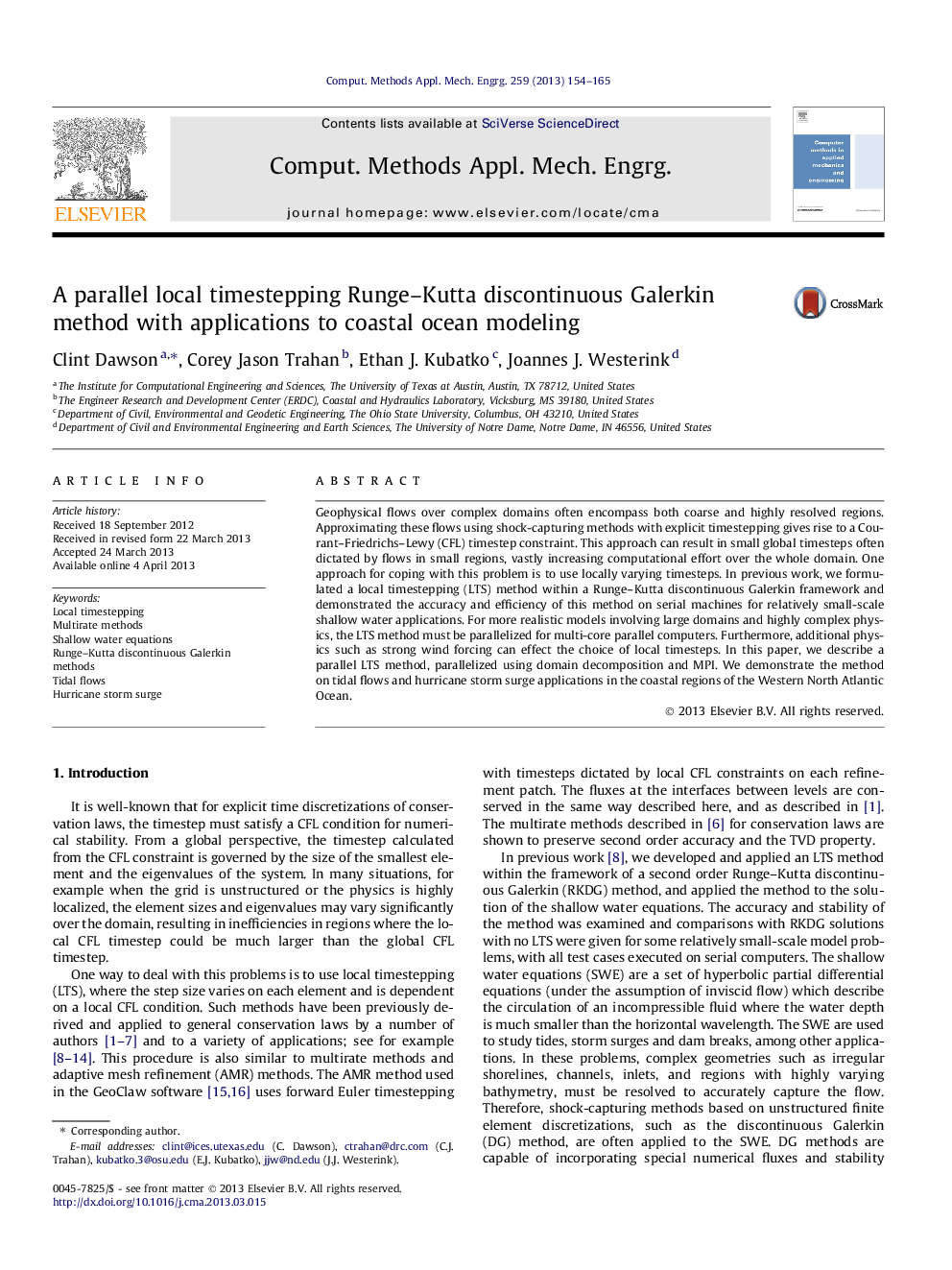| Article ID | Journal | Published Year | Pages | File Type |
|---|---|---|---|---|
| 6917980 | Computer Methods in Applied Mechanics and Engineering | 2013 | 12 Pages |
Abstract
Geophysical flows over complex domains often encompass both coarse and highly resolved regions. Approximating these flows using shock-capturing methods with explicit timestepping gives rise to a Courant-Friedrichs-Lewy (CFL) timestep constraint. This approach can result in small global timesteps often dictated by flows in small regions, vastly increasing computational effort over the whole domain. One approach for coping with this problem is to use locally varying timesteps. In previous work, we formulated a local timestepping (LTS) method within a Runge-Kutta discontinuous Galerkin framework and demonstrated the accuracy and efficiency of this method on serial machines for relatively small-scale shallow water applications. For more realistic models involving large domains and highly complex physics, the LTS method must be parallelized for multi-core parallel computers. Furthermore, additional physics such as strong wind forcing can effect the choice of local timesteps. In this paper, we describe a parallel LTS method, parallelized using domain decomposition and MPI. We demonstrate the method on tidal flows and hurricane storm surge applications in the coastal regions of the Western North Atlantic Ocean.
Related Topics
Physical Sciences and Engineering
Computer Science
Computer Science Applications
Authors
Clint Dawson, Corey Jason Trahan, Ethan J. Kubatko, Joannes J. Westerink,
